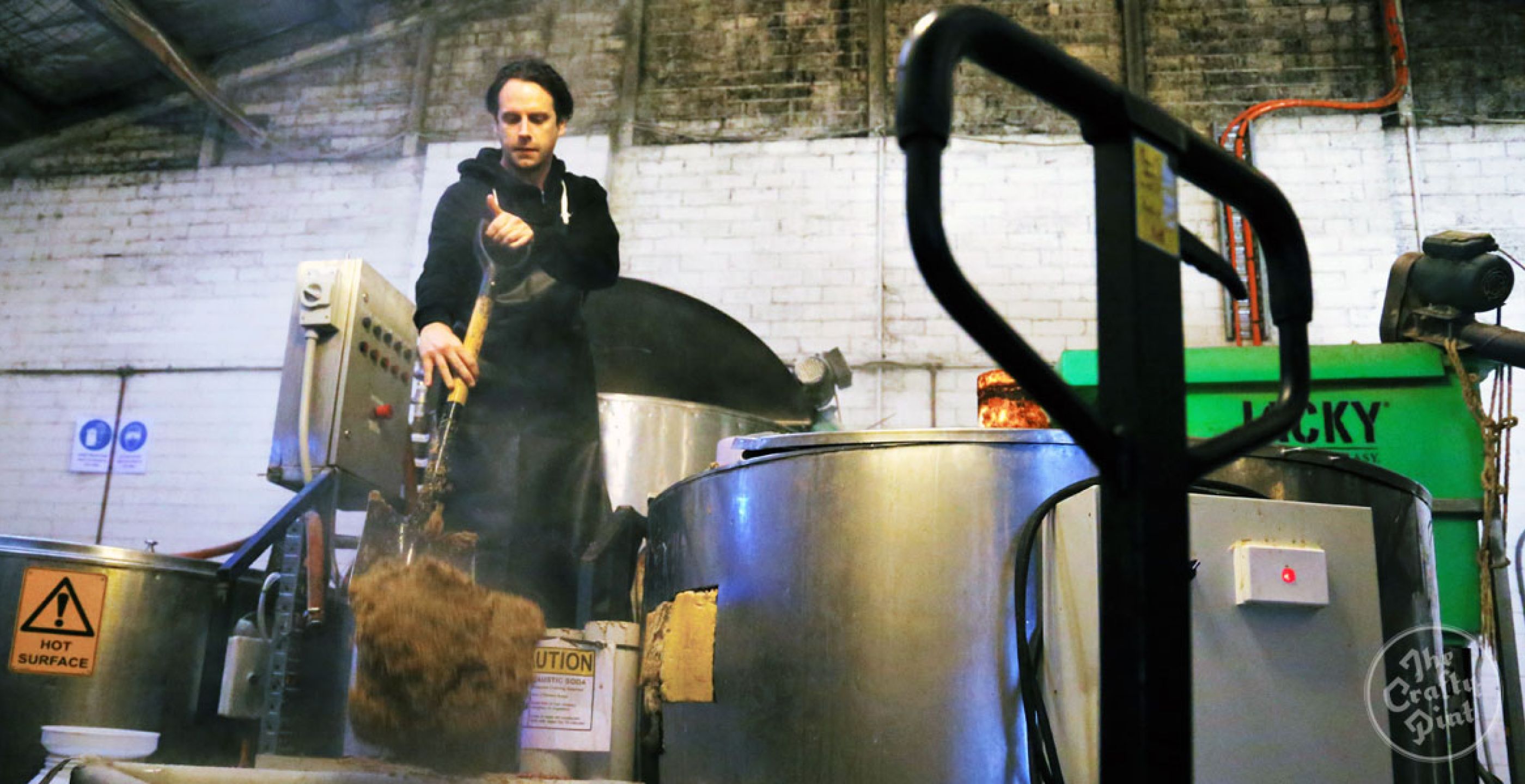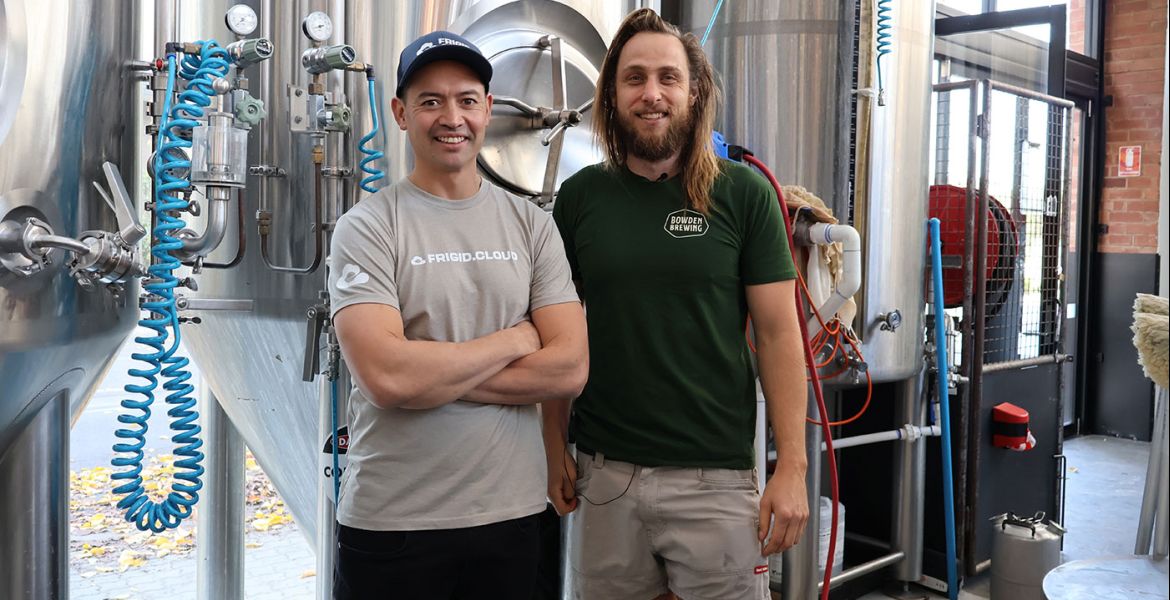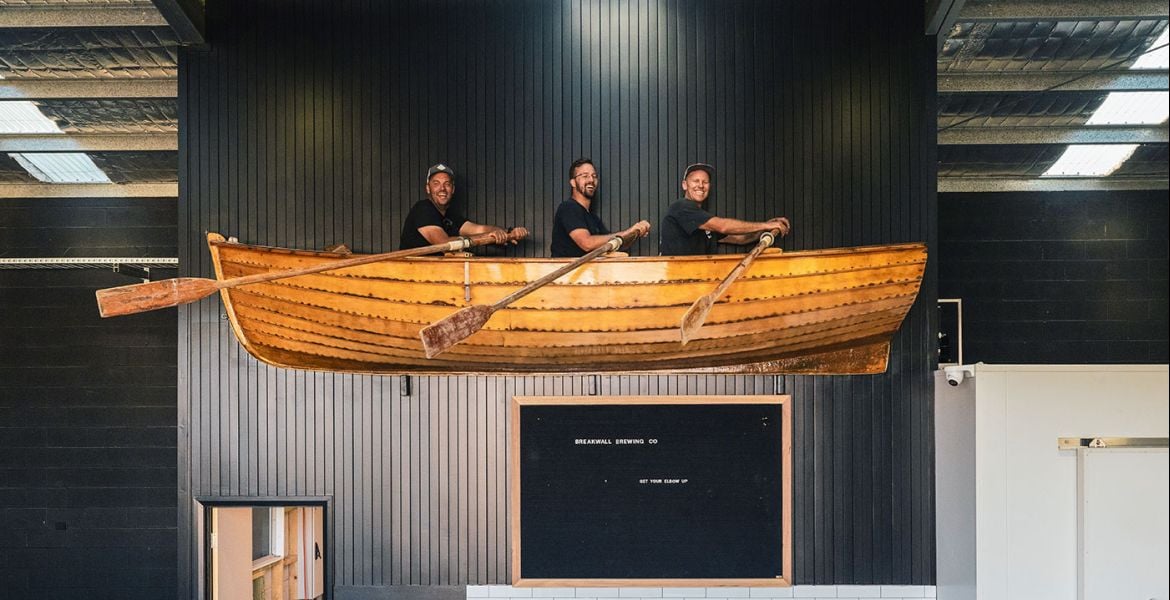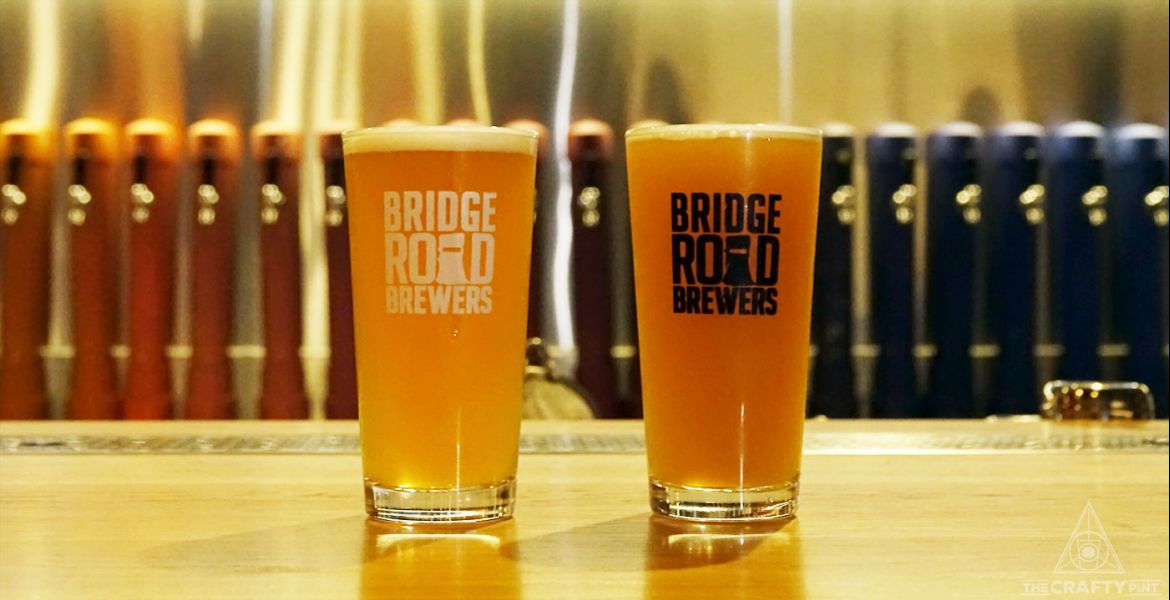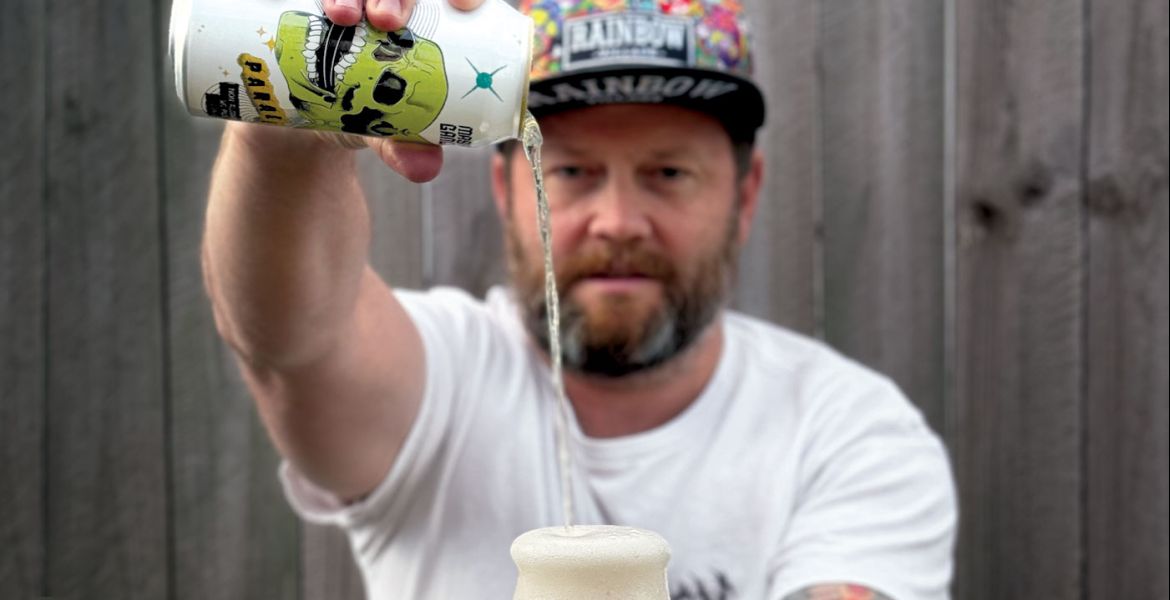To know Adrian McNulty is to know why he jumped at the chance to take up the role of Señor Brewer of Moon Dog. The Abbotsford brewery's senior brewer has previously worked for Grand Ridge, Jamieson and 3 Ravens, winning the AIBA Champion Small Brewery title in 2014 at the last of these just before making the switch to his current role.
He now dedicates himself to exploring the weirder side of brewing life, thanks to Moon Dog’s less-than-conventional approach to brewing, not to mention their brewing kit, which is still for the most part made up of repurposed dairy equipment. Since joining he's been responsible for the likes of Bad Boy Bubbly, an attempt to make champagne out of beer's ingredients, as well as countless out there small batch and single keg experiments.
Moon Dog’s new production brewery just two doors down from their current site, which they bought from De Bortoli earlier this year, is due to open its doors in a matter of months. It means they’ll soon have four times the brewing capacity and their current site will become a dedicated brewhouse for specialties and experimental brews.
Before his weeks become split between two separate brewing sites, for the second of our Day In The Life features we had a chat with Adrian about life as a senior brewer at one of Australia’s most unique breweries. You can read the first in the series – life as a beer rep – here.
Adrian's Typical Brew Day
His days usually start around 4am; Adrian is first onsite at Moon Dog before the sun has risen.
The brewery typically completes two brews a day, so he mashes in first thing, a process that will take around 90 minutes to complete. While the malt does its thing, there is a never-ending amount of cleaning to get stuck into.
Faced with repurposed dairy equipment, transferring the wort to the kettle and cleaning out the mash tun at Moon Dog requires a few special hacks, from a specially fitted mesh sleeve to catch the grain that sneaks through the filter, to a hand scoop to get out the last dregs of spent grain from the tun.
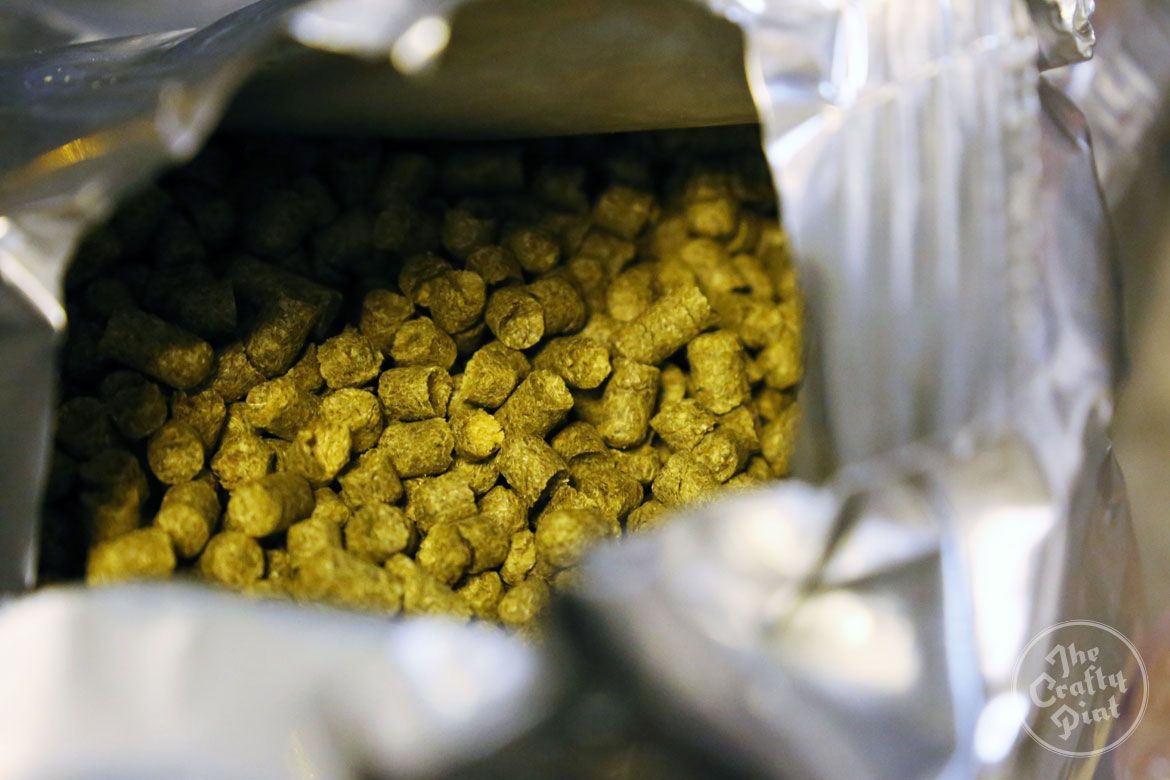
By the time the process hits mid-morning and the kettle is doing its thing, Adrian can turn his hand to coffee and confirming the recipe for the hops. On the morning we visited, he was on to the seventh incarnation of their Jukebox Hero IPA and trying a hop they had yet to work with before: Comet. Bent over the bags of hops, he assesses where and when he'll add the new hop into the mix.
As the kettle boils away for another 90 minutes, it allows Adrian time to check on the other brews, from testing the gravity of those just about ready for release, to helping with a bit of kegging, to – you guessed it – cleaning.
Back to the brew at hand, and it's time for the hops to join the party. Mosaic, Simcoe and Comet are all added, either to the kettle or once the brew has been transferred to the whirlpool. The brew will sit there for about 40 minutes before making its way to the fermenter. Depending on the brew, fermentation in the tanks can take anywhere from two weeks for the likes of their Old Mate pale ale, to five or six weeks for their Love Tap lager.
From there, Adrian's day will roll on depending on the week's requirements. As a senior brewer, he'll need to turn his mind to recipe development, exploring options for their single keg releases, and assessing the progress of the beer in the tanks. Bottling and kegging are an ever present task, and cleaning keeps hands from lying idle at any point.
How long have you been brewing for?
Adrian McNulty: For ten to 11 years. I started at Grand Ridge, straight out of university in Ballarat, and have been in it ever since. I started studying food science, but it wasn’t to my taste. Luckily the University of Ballarat was running beer awards then, and in my second year they put a call out for stewards. It was one of the first times I’d properly been exposed to beers beyond your usual VB and so on, and just really loved it, so transferred over to their brewing course.
I was at Grand Ridge for about 18 months, then moved to Brisbane where I worked at a brewery for all of three weeks before they shut down and I lost my job! So I worked at a call centre for about ten months before moving back down to Melbourne while my girlfriend studied at Swinburne. While she did that, I worked at Jamieson Brewery [in northeast Victoria], driving up on Monday morning and coming back on Fridays. It was a lengthy trip to what is a beautiful part of the world.
I was there for about 12 months, then after a stint in Taree, New South Wales, I applied for a brewing job at 3 Ravens in Melbourne, where I worked my way up to head brewer after two or three years. After five years there and a few awards, I decided to try my thing elsewhere, and landed the Señor Brewer role at Moon Dog.
How physical is brewing each day?
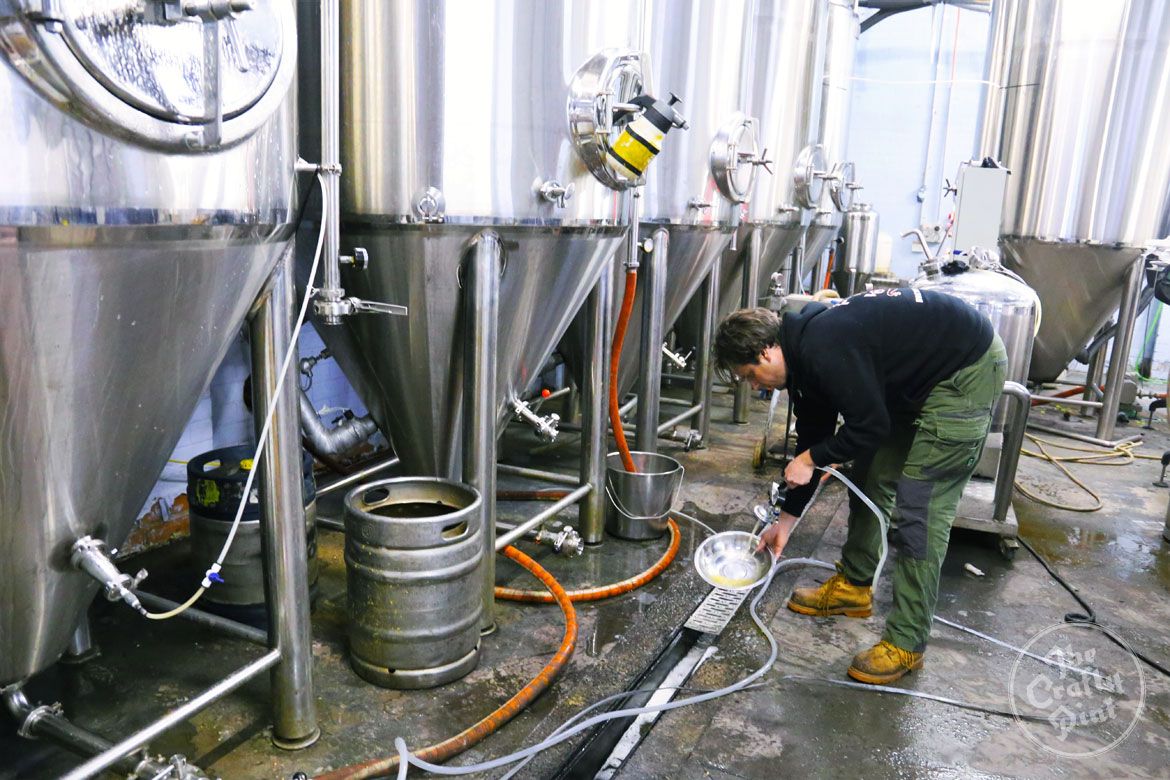
AM: There’s a fair bit of labour, from moving bags of grain around, shifting kegs, shovelling out mash tuns, mashing in, and so on. Anything that’s not automated requires a certain amount of physical labour. Because we’re dealing with dairy equipment, our brewing kit has idiosyncrasies that most breweries wouldn’t have to deal with, like having to fully shovel out the mash tun after each brew.
Bottling for us is also fairly manual, but boring as fuck and endlessly repetitive on top of it. We bottle two to three times a week, so you can’t completely avoid it.
We do three to four brews a week, and in that process there are always gaps where you’re waiting for the wort to boil or something. You fill in all those gaps with cleaning stuff, preparing stuff, plannng stuff, or whatever it might be.
Outside of brew days, as the senior brewer there’s a lot of research and development for single kegs we have coming up as well. It’s hard to have a slow day in brewing, because there’s always cleaning you can be doing.
In your role as Senior (Señor in this case) Brewer, what other responsibilities do you have?
AM: I’ve got more responsibility when it comes to risky decisions. I’m involved with the development and conception of new beers, from thinking about the recipes to test batches.
But it also starts at the very beginning of the process, where I’ve got to make sure we’ve got all the raw materials for brewing, such as your malts and hops. I oversee a lot of the beer production, as well as being heavily involved in the production of the beer itself.
A trainee or assistant brewer can expect to be cleaning kegs, filling kegs, and more cleaning. Once you’ve got used to the systems and the kit, that’s when you’ll start to be more involved with brew days and that kind of thing.
How much does it vary between breweries?
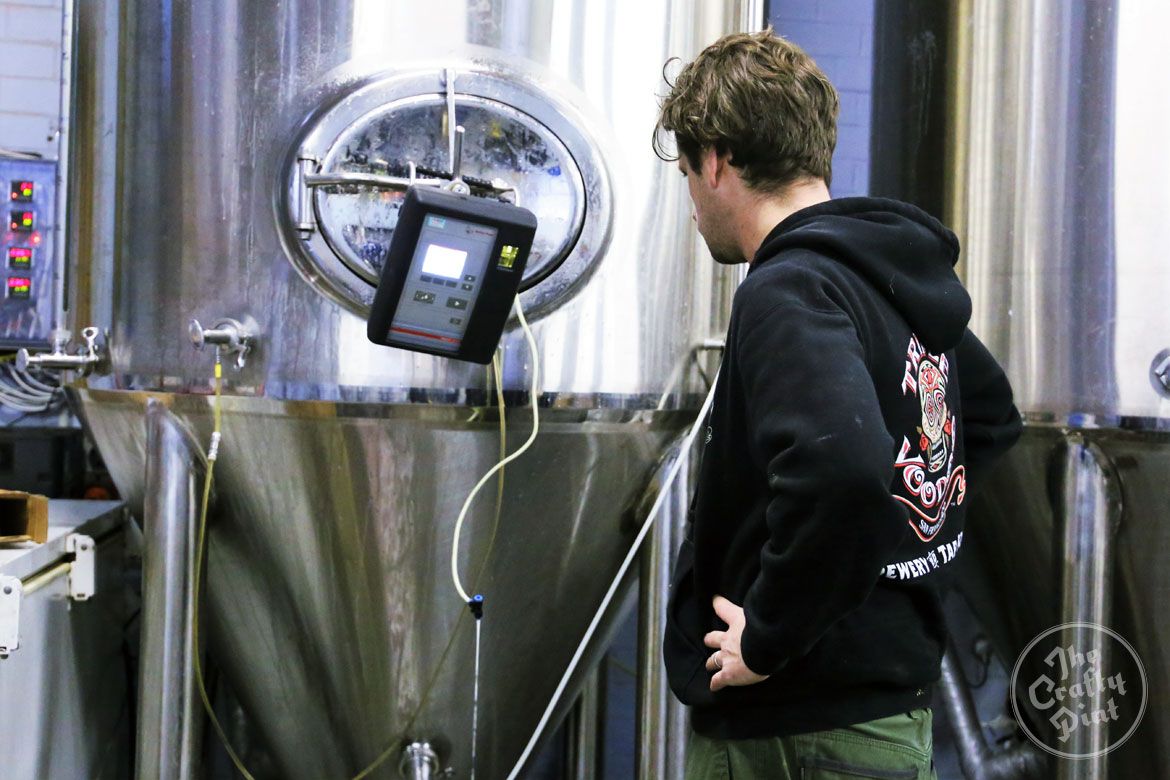
AM: The cleaning always stays the same. I haven’t worked in too many larger microbreweries, where I’m sure the automation levels would mean things are quite different. Here at Moon Dog and in my previous jobs, they’ve all been quite physical. But the troubleshooting and hygiene will always be there, unless you manage to find yourself at one of those mythical trouble-free breweries.
How does Moon Dog balance the needs of production with allowing time for experimentation?
AM: When it comes to the single kegs [new beers that are tapped at the brewery every Thursday], there’s no thought whatsoever for production levels. Once you find time for single kegs outside of the general brewing schedule, as far as what goes in there it’s a case of what you think might work well.
There’s no discussion around whether it can be scaled up, because often it would simply be impossible. It’s just not feasible to get $45,000 worth of caviar into your beer, or buy 800 roast chickens for a full batch.
What’s your favourite part about experimenting with single keg releases?
AM: Some of the first few I did I really enjoyed, because it was my first time brewing with complete freedom to experiment. For example, I did a passionfruit red ale that I was really happy with. Then you’ve got beers that went on to become larger releases like our Bad Boy Bubbly, Ogden Nash’s Pash Rash, and Breakfast of Champions, our Bloody Mary beer.
I love exploring recipes where you’re using non-traditional ingredients or combinations that shouldn’t work. If you ask a lot of people they’d say tomato in beer doesn’t work, but Breakfast of Champions says otherwise.
What is the biggest misconception about brewing?
AM: That would have to be the belief that we sit around and drink all the time. As well as thinking that brewing is anything much more than cleaning and troubleshooting. That’s 95 percent of my job.
I’d say four percent is brewing, and one percent is events, drinking, and fun stuff like that. But it’s mostly cleaning, and being cold, wet and filthy all at the same time.
What does someone who wants to become a brewer need to be prepared for?
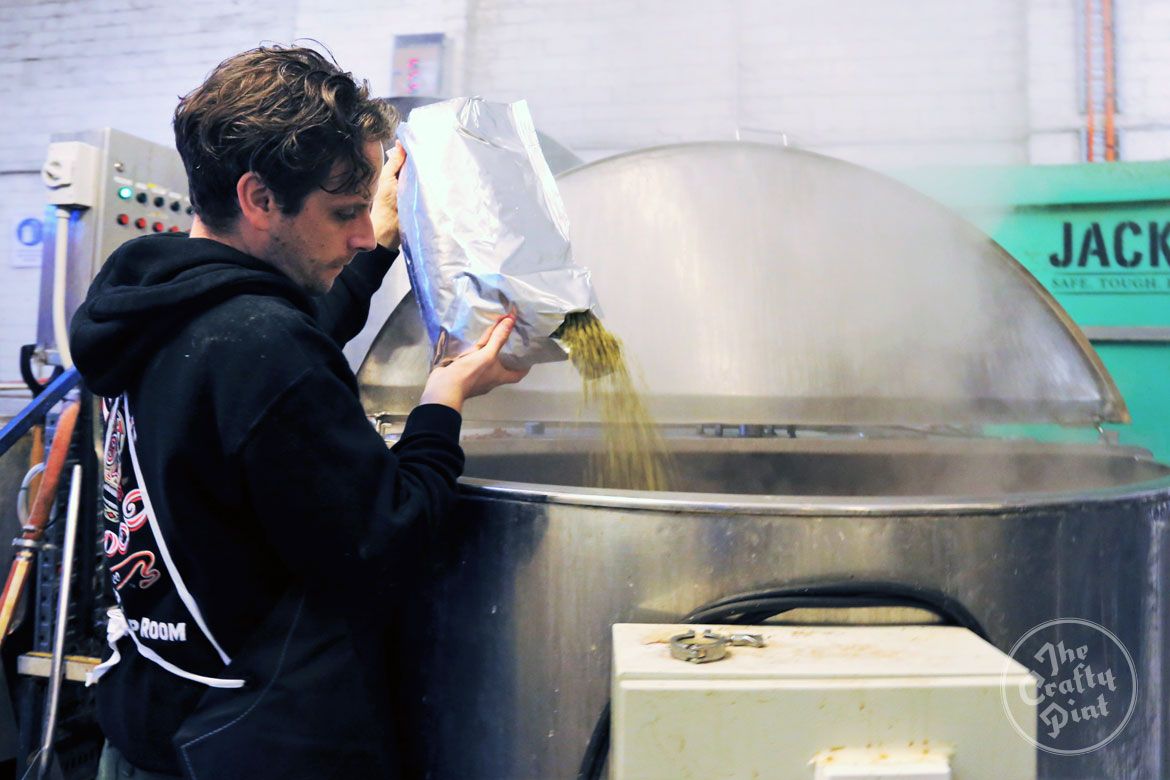
AM: They need to be ready to do absolute grunt work – the shittiest of the shit jobs – and to do them for longer than they’d like. But also get an understanding that that stuff doesn’t stop once you’re no longer in training. There’s always more cleaning and kegging that needs to be done.
There are a lot more microbreweries than when I started out, but there also so many more potential brewers: those who want to quit doing IT and give brewing a crack. But there are still very few breweries who are expanding and adding jobs at the same rate of knots as the interest in brewing is growing.
If you can look into doing a course then that’s your best chance. Even for the most basic brewing roles, I’ve seen something like 200 applications come in for a trainee brewer. In that pool, it’s hard to go past those with actual brewing related study under their belt, because there’s so much of the science and theory you won’t need to explain.
What’s the best part of your job?
AM: Getting to experiment with different things. The brewing itself is easily the best part of the day but, overall, the research and development is awesome. Seeing how other people are doing things, exploring new techniques, and thinking about how you can incorporate some of that into your brewing.
It’s interesting to see how people approach different flavours, styles, and even problems that come up. That thought process really interests me.
What’s the worst part about your job?
AM: Bottling. All the cleaning is actually fine, but bottling sucks.
Or when the sump pump goes in the drain, and you’ve got to get in there up to your knees in water that doesn’t smell particularly nice, getting covered in all sorts of stuff. That’s never a good time.
How has the industry changed since you started?
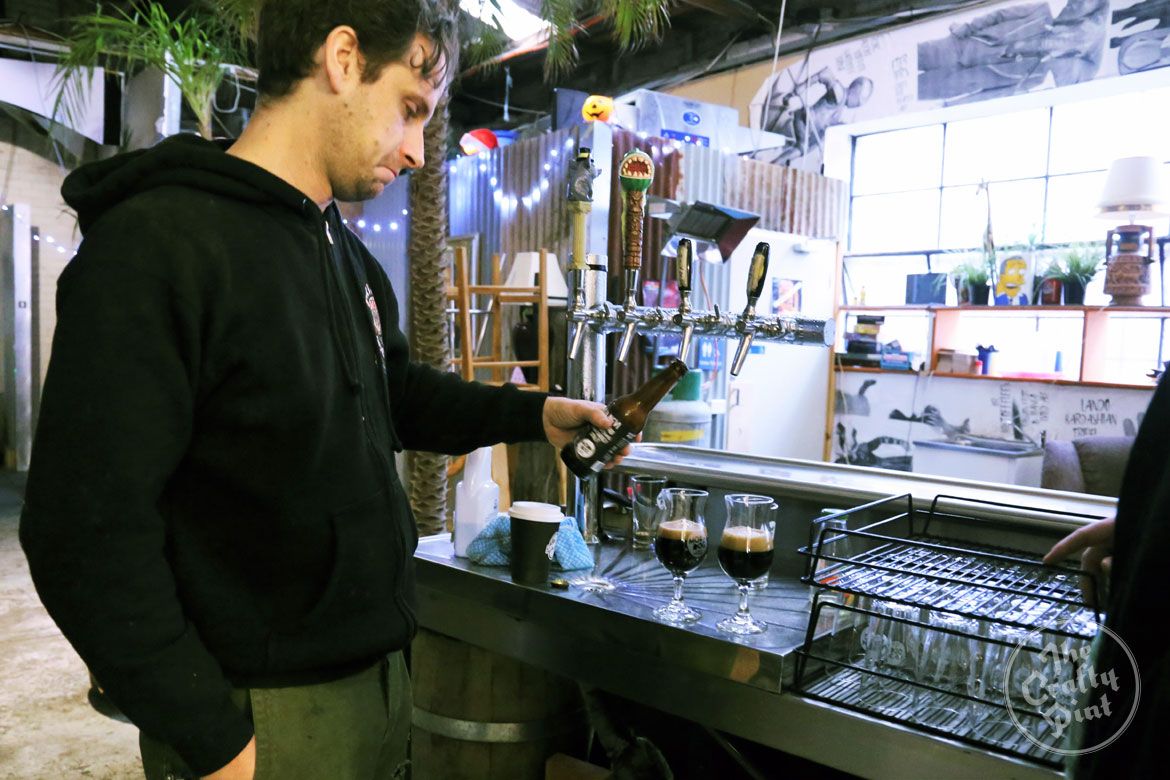
AM: There were probably about seven or so microbreweries in Victoria when I started, of which four are now gone. We’ve now got over 100, so obviously the industry has expanded like crazy. But, at the same time, the general knowledge and education of beer drinkers is higher.
Craft beer was a bit more of a novelty when I started out, but now people expect to be able to go into a venue and have a range of beers at their disposal.
How do you think it will change in the next few years?
AM: We’ve still got room for growth to satisfy the demand that’s out there; breweries can still grow into new markets and really prosper. What’ll eventually happen is we’ll see a slowdown in the number of craft breweries forming. We can’t get to a point where every man, woman and child has their own craft brewery. We’ll start seeing more buyouts as well, I’m sure.
Since I started there have also been breweries who survived only by the skin of their teeth, and now that the pressure is on and the competition is there, they’ve had to really take a look at what they’re offering and step it up. Breweries now simply have to make better beer. It’s got to be more consistent, stable, and a higher quality product. That’s only going to become more important.
Thanks for your time and insights, Adrian. If you're reading this article close to publication date and see Jukebox Hero on tap, chances are it will be the batch brewed while Kerry was on hand to help (or get in the way) while preparing this article. Update: the batch won the Victorian IPA Showdown at the Terminus!
While it's true that life from brewery to brewery will differ, there should be plenty in what Adrian, with multiple breweries and a few trophies behind him, has to say of benefit to those considering life as a brewer.



